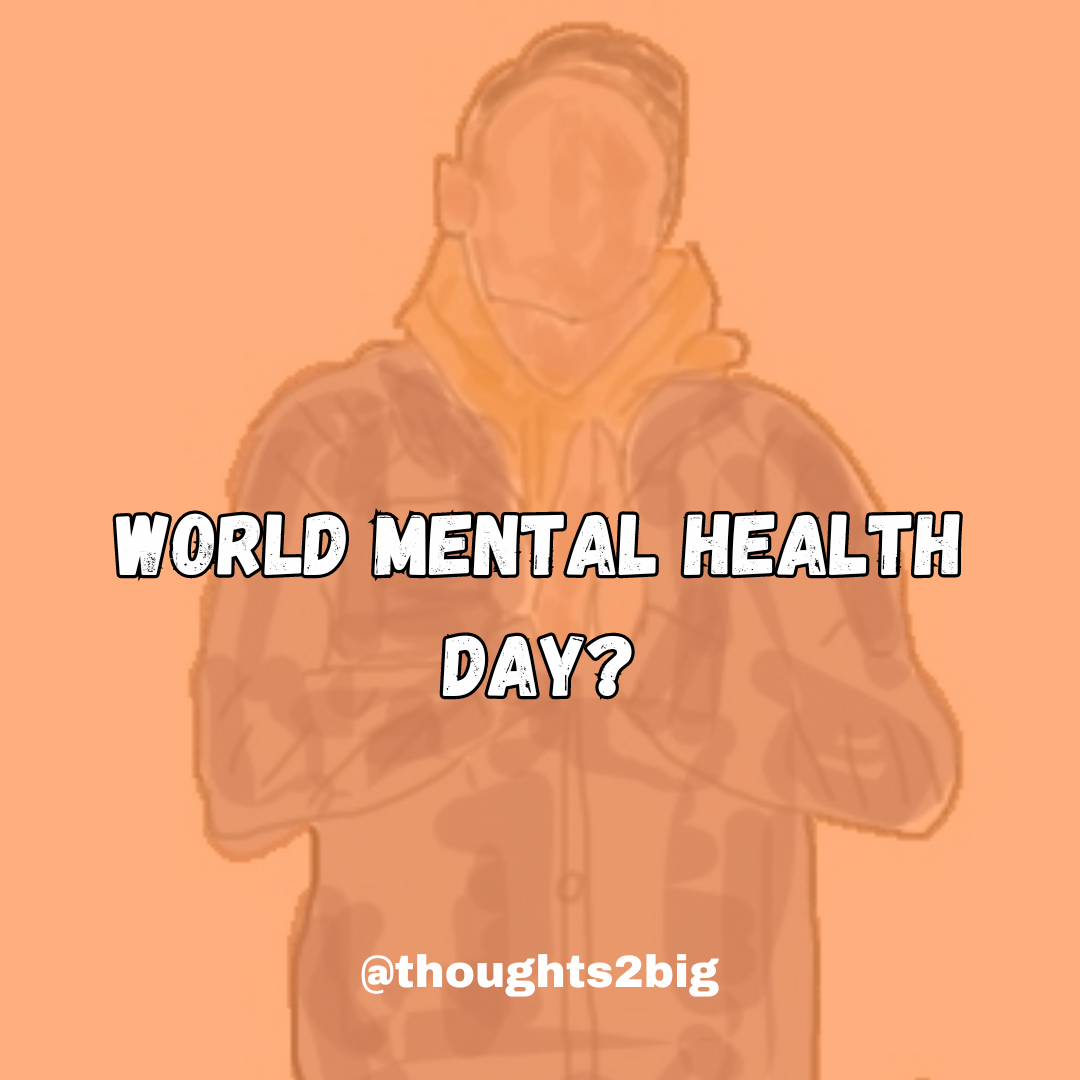World Mental Health Day?

World Mental Health Day is this Tuesday. I have a mixed relationship with this day. On one hand, it’s good to have a day dedicated to mental health. It’s needed, important, essential. On the other hand, we should be highlighting mental health every day, in the ways that we can. Mental health is a year round priority, because we all have mental health, all of the time.
This doesn’t mean you have to dedicate your life to it. You don’t have to start a blog, a podcast, write a book, stand on stages and talk about it in depth. Not all of us have the time or interest to do all of that. But you can make mental health something you take seriously. There are many ways to do this. But I want to focus on one today, something we can all do to change how we frame mental health
Speak honestly.
When someone asks you how you are, be honest. Don’t just default to ‘I’m grand.’ Some days this will be true, of course, but we’re not always grand. Sometimes we’re tired, sad, anxious, frustrated. If we answer even this simple question honestly, we signal to others that it’s okay to be honest about how we’re feeling, and this will encourage people who are struggling to join the conversation. It’s a simple thing we can all do.
We can also change how we ask this question. ‘How are you?’ is a phrase primed for a quick answer. We answer automatically. It’s used more as a greeting than a genuine interest in someone else’s wellbeing. What are some other phrases we could use?
“How are you feeling?”
“How’s the head?”
“How’s your mental health?”
“How are you coping?”
Even applying these small changes can have huge benefit. For one, you get to share how you’re feeling with others. When we do this, we immediately feel the effect. We feel lighter. We feel heard, and often, we start to feel better. Secondly, it signals to whoever you’re talking to that they too can be honest. They too, can tell others they’re feeling, honestly.
Whenever we talk honestly about our mental health it tells the people listening that they can talk openly about theirs, and that they can talk specifically to you in a way that they will not feel judged or stigmatised. This then causes a ripple effect, as the people you talk to will go on to talk to other people, and those people will go on to talk to other people and so on.
By answering this one simple question honestly, we can transform how we address emotions. We can help people to feel comfortable and safe with revealing their struggles, because if you know that I’m being honest with you about how I’m feeling, then you also understand that you can be honest with me.
Being radically honest as a collective takes the pressure off of those struggling to open up, because if we’re opening up the conversation, then everyone can be heard.
I also write a Substack sometimes